This year was filled with many amazing books. Sure, I say this every single year, but it doesn’t mean it’s not true.
This year marks my fourth year doing my annual ‘most interesting’ book list (you can find my previous years’ lists linked at the bottom of this newsletter), and my biggest year of reading yet. I should hit the 70 books mark by the end of December.
Each year it becomes a little more difficult to pick out just 10 books that I label as ‘most interesting’. Why do I use most interesting rather than, say, ‘best’? First, because nearly every other list is a ‘best’ list. But also because ‘best’ feels vague. Best how? Most enjoyable? Best writing? Best product?
‘Interesting’ on the other hand is more specific. Sure, all of the books below are great books that are enjoyable to read. But so are a lot of books. I choose ‘most interesting’ because I want to share books that are unique in topic, take, or detail. Books that gave me a truly new perspective on something. Books that I didn’t know I wanted to read. Books that I believe to be of high value for other readers, not merely a good read.
Without further ado (if you even read this far before scrolling to the list), here are the 10 most interesting books I read in 2022. Happy reading!
The Sound of the Sea: Seashells and the Fate of the Oceans
By Cynthia Barnett | Published: July 2021 (W. W. Norton) | My full review
Not only does this book have an outrageously gorgeous cover, but the book itself is so unique. Have you ever thought of human cultural history through the lens of seashells? I certainly had not! The Sound of the Sea is set up in three parts, with each chapter focusing on a particular shell and the role that shell plays in various cultures across history and around the world. The first part focuses more on the evolution of seashells over 800 million years and where they come from. Part two is the core history section of the book, and part three shares stories of seashells disappearing due to over harvesting and human caused climate change. It’s a profoundly interesting book, and one that I knew was going to end up on this list while I was reading it.
The Rise and Reign of the Mammals: A New History, from the Shadow of the Dinosaurs to Us | By Steve Brusatte | Published: June 2022 (Mariner Books) | My full review
If you’ve been a follower of mine all year, you know how excited I was for this book coming out. Steve was kind enough to give me an advanced copy and I blew through this epic journey of mammal evolution in three days. Rise and Reign of the Mammals goes far beyond the trope of “dinosaurs died and then mammals thrived” to explain the long and fascinating evolutionary history of mammals – they existed before dinosaurs went extinct! You’ll learn so much about mammals in this book: what makes mammals mammals, why they were so tiny for so long and why land mammals won’t ever get to be as big as the biggest dinosaurs. I could go on and on with interesting facts, but I’ll let you read for yourself.
Maverick: A Biography of Thomas Sowell | By Jason Riley | Published: May 2021 (Basic Books) | My full review
Most biographies center on the subject’s life story. But not this biography. This type of biography could only be written about a person so impactful in their thinking that they deserve and entire biography about only their intellectual contributions. That person is Thomas Sowell. An economist by training, Sowell has made contributions to a variety of areas of importance, including economic issues such as minimum wage laws (and argues that they only out-price young minority workers out of jobs), education and affirmative action policies (being unapologetically against them), and socioeconomic mobility of minority groups in America (focusing on the cultural differences among groups and being firmly against hereditarian hypotheses of IQ). Sowell should make any left-leaning liberal question their fundamental political principles (as happens to me every time I read his work). This is a phenomenal book.
How the Mountains Grew: A New Geological History of North America | By John Dvorak | Published: August 2021 (Pegasus Books) | My full review
Get a notepad out for this one because you’re going to learn more earth science than probably any other book you’ve ever read. You’ll learn about nearly every interesting geological change that has occurred over the last 4.5 billion years to create the North American geological landscapes we know today. What I found particularly fascinating about this book was Dvorak’s integration of biology and evolution into his obviously geological text. He explains this is inevitable given that the evolution of life is so intimately intertwined with geological change. North America is an incredibly diverse geological place – this book will tell you how it got that way.
Invisible Child: Poverty, Survival & Hope in an American City | By Andrea Elliott | Published: November 2021 (Random House) | My full review
Not only is Invisible Child one of the most interesting books I read this year, but it is also one of the best books I’ve ever read. It’s an incredible, tragic, heart-wrenching story of homelessness in the most prosperous city in America, as told through the eyes of a child. Poverty is a hard topic to write about. It’s a polarizing topic where ideological battles rage. This is why Elliott chose to write about homelessness from the perspective of a child and her family. Pundits on both sides the aisle can chastise homeless adults, but how do you blame a child for being homeless? The decade of reporting by Elliott, which culminated in Invisible Child, is impressive not only for its length but also its depth. The trust built with Dasani’s family to allow a reporter into their lives to chronicle every detail, struggle, and change is remarkable. And the story that results is tragic and informative.
The Invention of Tomorrow: A Natural History of Foresight | By Thomas Suddendorf, Jonathan Redshaw, and Adam Bulley | Published: September 2022 (Basic Books) | My full review
This is a book I had no idea I needed to read. A someone who has a PhD specializing in evolution and human behavior, a book in this space generally doesn’t make it to my annual list because there’s a higher bar as to what constitutes a highly interesting book to me given my education. But this book provided an immense amount of insight to a topic I honestly never gave much thought to: foresight. The Invention of Tomorrow is a synthesis of human evolution, developmental and cognitive psychology, and neuroscience explaining in detail what foresight is, how it develops, how it evolved, and what it means for the future of our civilization. It’s an expertly written book, highly informative, and enormously engaging. I feel that after reading this book, I have a new layer of knowledge from which to understand human development and cognition. I truly haven’t learned so much about evolutionary cognition in years. It’s a phenomenal book.
After the Ivory Tower Falls: How College Broke the American Dream and Blew Up Our Politics―and How to Fix It | By Will Bunch | Published: August 2022 (William Morrow) | My full review
Books on higher education are some of my favorite, but truly great ones that offer you something really new are few and far between. This year, however, After the Ivory Tower Falls, offered the best diagnosis I’ve read of what the hell has gone wrong in higher education and politics today. Bunch demonstrates how higher ed and politics have become inexorably intertwined since the post-war era, with education being the most robust dividing line between republicans and democrats now. Higher education was historically seen as a good investment into our citizenry. A way to keep the US on top. But as the 1960s era of campus protests erupted, conservative lawmakers began to shift their perspective on higher education. Rather than taxpayer funded colleges where students were protesting the very government paying for their liberal education, the view of college as a public good began to collapse. This is a must read, and even inspired me to publish an op-ed in Inside Higher Ed.
Picasso's War: How Modern Art Came to America | By Hugh Eakin | Published: July 2022 (Crown) | My full review
I took Intro to Art History or something to that effect my first semester in college, and I recall nothing, especially not of modern art. Like so much that occurred in 20th century America, the wars play a pivotal role. And the history of modern art is certainly no exception. Picasso’s War covered the history of modern art in America, with the focus of the book on the tumultuous first half of the 20th century. Until reading this book, I had no idea of the opposition to modern art coming to America from France, Germany, and Russia. Nor did I realize how long it took – literally decades – until modern art was accepted as a legitimate art that did not threaten public morality. We owe the modern art movement in America largely to a passionate man named John Quinn who dedicated most of his life to supporting soon-to-be modern art icons like Picasso here in the States. Eventually his vision was realized, but only many decades after his death. A must read for art, history, or cultural buffs.
Anna: The Biography | By Amy Odell | Published: May 2022 (Gallery Books) | My full review
I’d venture a guess that most readers of my newsletter aren’t also subscribed to Vogue. But the brilliance of good biographies is that they share stories of interesting people that you don’t need to know of prior. And if you don’t know who Anna Wintour is, then even more reason you have to read this book. Anna is the most powerful woman in fashion and is the sole person that can make or break new designers. Celebrities vie for her approval and hope for an invite to “fashions biggest night” – the annual Met Gala she’s been hosting every May for over 20 years. In this unauthorized biography, Odell pulls back the curtain to shed light on the woman behind the iconic sunglasses and bob cut. Anna is unapologetic in her authenticity and has been behind key shifts in fashion. I absolutely loved this book, and learned so much about Anna and her role in the fashion industry.
Endless Forms: The Secret World of Wasps | By Seirian Summer | Published: July 2022 (Harper) | My full review
Wasps have a fatal PR issue. They are the much, much less popular cousin of bees, and instead of saving the planet through pollination, wasps just swarm and sting and ruin your outdoor experience. But what if your stereotype of them was completely wrong? Endless Forms is wasp scientist Seirian Summer’s attempt to combat the negative PR of wasps and showcase what a spectacular example of evolution the species is. Wasps first evolved around 280 million years ago, and about 40 million years later evolved their characteristic taste for meat – other animals. Most wasps are hunters, feasting on other insects. And this is their key role in nature: wasps are effective insect control for the planet. They can even be used as natural, chemical-free pest control in agriculture. Endless Forms is by far one of the most informative books I’ve ever read on a single animal. This is a must read for those that want to learn seemingly endless new lessons about insects, evolution, and our understanding of nature.
Check out my previous ‘Most Interesting’ book lists
Most Interesting Books – 2020 | Most Interesting Books - 2019
This post contains affiliate links, allowing me to earn a small commission when you purchase books from the link provided. There is no cost to you, and this will allow me to keep this newsletter free and open to all. Happy reading!





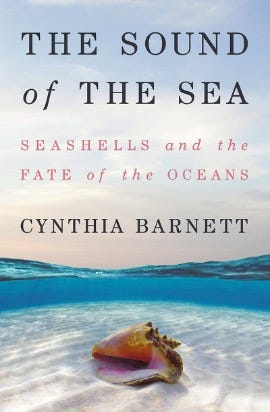


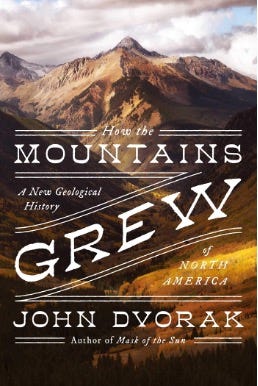
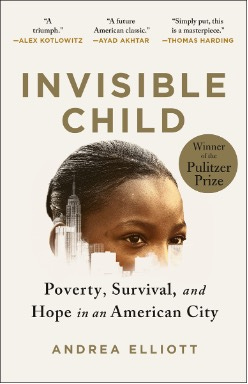
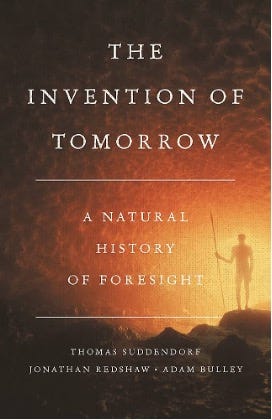
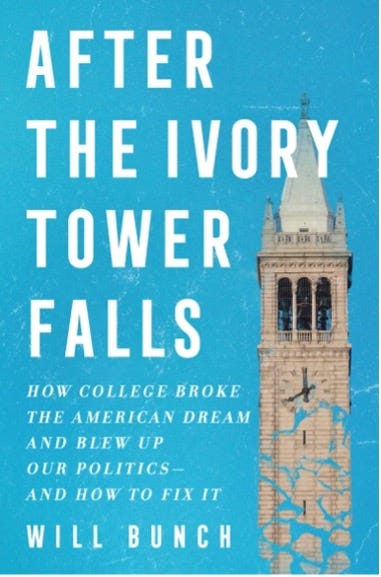


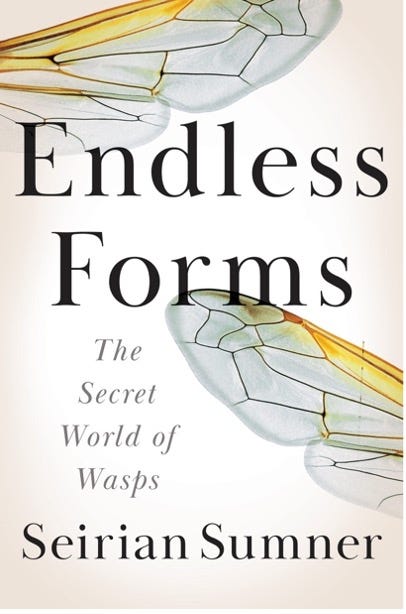

Excellent roundup! There are quite a few here that are also on my TBR. I don’t know much about Anna W so I’ll definitely look for this one.